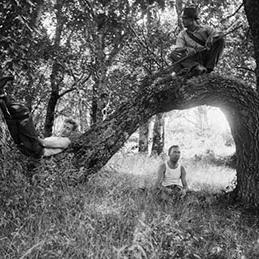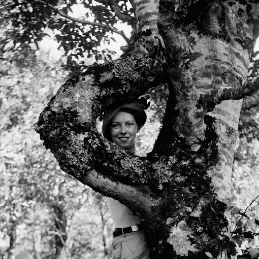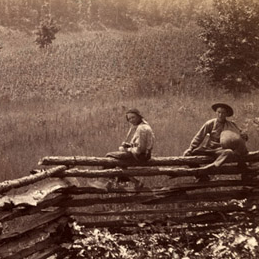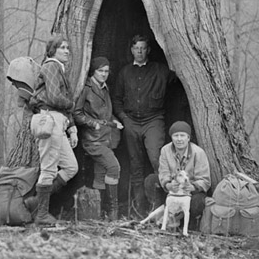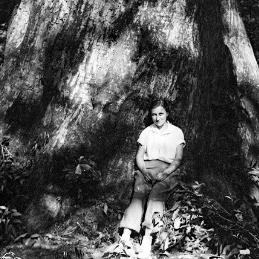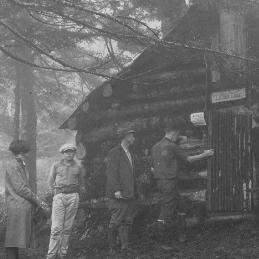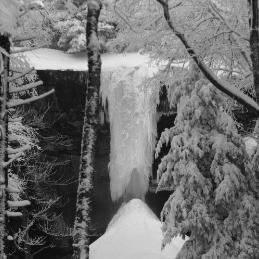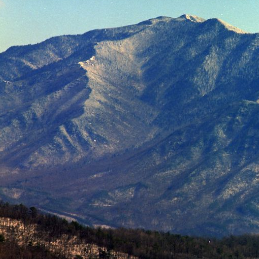Browse
Asheville & the Great Smoky Mountains. Berkeley, CA: Avalon Travel a member of the Perseus Books Group, 2016.
"Aspects of Limnology in America, 1930s to about 1990, Led by Hutchinson and Hasler." Bulletin of the Ecological Society of America 97, no. 3 (2016): 228-282.
Aspects of Water Quality and Their Relationship to Hydrology in Coal Mined Drainage Basins in the Cumberland Mountains. Knoxville, TN: University of Tennessee, 1975.
"Assessing environmental factors in red spruce (Picea rubens Sarg.) growth in the Great Smoky Mountains National Park, USA: From conceptual model, envirogram, to simulation model." Ecological Modelling 222, no. 3 (2011): 824-835.
"Assessing Longitudinal Diet Patterns of Black Bears in Great Smoky Mountains National Park Using Stable Nitrogen Isotopes." International Bear News 21, no. 1 (2012): 37-38.
Assessing the Diversity and Habitat Associations of Salamanders in Great Smoky Mountains National Park In 1998 Annual Report. Raleigh, NC: North Carolina State University, 1999.
"Assessing the Potential Impacts to Riparian Ecosystems Resulting from Hemlock Mortality in Great Smoky Mountains National Park." Environmental Management 44, no. 2 (2009): 335-345.
"Assessing the Risk of Foliar Injury From Ozone on Vegetation in Parks in the US National Park Service's Vital Signs Network." Environmental Pollution 149, no. 3 (2007): 348-357.
"Assessing Trail Conditions in Protected Areas: Application of a Problem-Assessment Method in Great Smoky Mountains National Park, USA." Environmental Conservation 26, no. 4 (1999): 270-279.
"Assessing wind and mammals as seed dispersal vectors in an invasive legume." Weed Research (2016).
Assessment of Archeological Resources of the Proposed Blue Ridge Parkway Extension within Great Smoky Mountains National Park. Tallahassee, FL: Southeast Archeological Center, Undated.
An Assessment of Campsite Conditions in Great Smoky Mountains National Park In Research/Resources Management Report. U. S. Department of the Interior, National Park Service , 1997.
Assessment of Factors Affecting Establishment of Biological Control Agents of Hemlock Woolly Adelgid on Eastern Hemlock in the Great Smoky Mountains National Park. Knoxville, TN: University of Tennessee, 2013.
"Assessment of Forest Decline in the Southern Appalachian Spruce-Fir Forest, USA." In Air Pollution and Forest Decline: Proceedings of the 14th International Meeting for Specialists in Air Pollution Effects on Forest Ecosystems, International Union of Forest Research O, 239-44. Birmensdorf, Switzerland: Eidgenössische Anstalt für das forstliche Versuchswesen, 1989.
Assessment of Potential Impacts of Gypsy Moth Infestations in the Great Smoky Mountains National Park In First Annual Southern Appalachian Man and the Biosphere Conference. Gatlinburg, TN: Tennessee Valley Authority, 1990.
Assessment of Potential Impacts of Gypsy Moths on the Forests of the Great Smoky Mountains National Park In Ecology. Knoxville, TN: University of Tennessee, 1993.
Assessment of Smallmouth Bass Micropterus Dolomieu and Rock Bass Ambloplites Rupestris Growth and Condition in the Little River, Tennessee In Wildlife and Fisheries Science. Knoxville: University of Tennessee, 2014.
Assessment of the Severity and Incidence of Rhododendron Dieback at Cerulean Knob in the Great Smoky Mountains National Park In Investigator's Annual Report Part II. Knonxville, TN: University of Tennessee, 1994.
An Assessment of Wildfire Vulnerability in Western North Carolina, USA Following the 2016 Wildfires In Department of Geography and Planning. Vol. Master of Arts. Appalachian State University, 2018.
Assistant to Director S. S. and her Journalism Class printing the school paper. The University of Tennessee Libraries Digital Collections: From Pi Beta Phi to Arrowmont, 1965.
"Association of White Pine with Other Forest Tree Species and Ribes in the Southern Appalachians." Journal of Forestry 47, no. 4 (1949): 285-291.
"Associations Between Causal Agents of the Beech Bark Disease Complex [Cryptococcus fagisuga (Homoptera: Cryptococcidae) and Nectria spp.] in the Great Smoky Mountains National Park." Environmental Entomology 33, no. 5 (2004): 1274-1281.
At Boys Dormitory - with teachers and staff, May, 1924.. The University of Tennessee Libraries Digital Collections: From Pi Beta Phi to Arrowmont, 1924.
At Davenport Gap. End of eight day trip.. The University of Tennessee Libraries Digital Collections: Albert Gordon "Dutch" Roth Digital Photograph Collection, 1944.
The A.T. Guide: A Handbook for Hiking the Appalachian Trail. Jerelyn Press, 2012.

